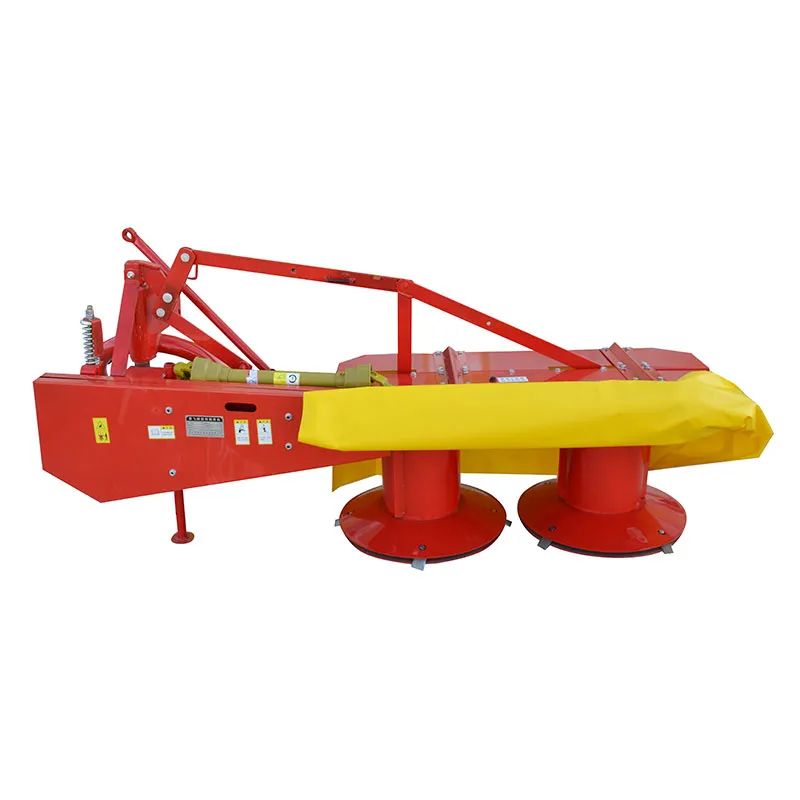A Complete Guide to Choosing the Perfect Lawn Mower for Your Garden
2024-09-07
Maintaining a pristine lawn requires the right tools, and at the heart of every well-manicured yard is a reliable lawn mower. With so many types of lawn mowers available, it can be overwhelming to decide which one is best suited for your garden. In this blog, we'll explore the different types of lawn mowers and provide insights to help you choose the perfect one.
1. Types of Lawn Mowers
There are several different types of lawn mowers, each designed for specific needs. Here’s a breakdown of the most common types:
a. Push Lawn Mowers
Push lawn mowers are ideal for smaller gardens. They are simple to operate and typically don’t require an external power source. However, they do require physical effort to push, making them suitable for flat lawns or areas with minimal incline.
- Best for: Small, flat lawns.
- Pros: Affordable, low-maintenance.
- Cons: Requires manual effort, not ideal for large yards.
b. Self-Propelled Lawn Mowers
Self-propelled lawn mowers take the effort out of mowing. They have a drive system that powers the wheels, allowing the mower to move forward with minimal push from the user. These mowers are great for medium to large-sized lawns.
- Best for: Medium to large lawns with uneven terrain.
- Pros: Less physical effort required, handles hills and slopes well.
- Cons: More expensive than push mowers, requires more maintenance.
c. Riding Lawn Mowers
For those with large properties, a riding lawn mower is a game-changer. These mowers come with a seat and allow you to ride as you mow, covering large areas efficiently. They come in various sizes and with different cutting width options, making them ideal for extensive lawns and even small fields.
- Best for: Large lawns and estates.
- Pros: Extremely efficient, easy to use.
- Cons: Expensive, requires storage space, higher maintenance.
d. Electric Lawn Mowers
Electric lawn mowers are available in both corded and cordless models. They are eco-friendly, quieter than gas-powered mowers, and require less maintenance. Corded models have the drawback of needing a nearby power outlet, while cordless models are powered by rechargeable batteries.
- Best for: Small to medium-sized lawns.
- Pros: Quiet, eco-friendly, low-maintenance.
- Cons: Limited runtime for battery-powered models, cord can restrict mobility for corded versions.
e. Robot Lawn Mowers
Robot lawn mowers offer a completely hands-free experience. These automated mowers can be programmed to mow your lawn at specific times, returning to their charging station when finished. They are perfect for people with busy schedules who want to keep their lawn in top condition without any manual effort.
- Best for: Small to medium-sized lawns.
- Pros: Fully automated, minimal maintenance.
- Cons: Expensive, may require perimeter wires for boundary setting.
2. Factors to Consider When Choosing a Lawn Mower

Selecting the right lawn mower depends on several key factors:
a. Lawn Size
The size of your lawn is one of the most important factors when choosing a mower. For small lawns, a push or electric mower may be sufficient, while larger properties might require a self-propelled or riding mower.
b. Terrain
Is your lawn flat, hilly, or filled with obstacles like trees and flower beds? For uneven terrain or slopes, a self-propelled mower is a better choice, while flat lawns can be managed with a basic push mower.
c. Power Source
Lawn mowers can be powered by gas, electricity, or batteries. Gas-powered mowers are great for large areas but are noisier and require more maintenance. Electric mowers are quieter and more environmentally friendly, though battery-powered models may need recharging during use.
d. Cutting Width
The cutting width determines how much grass the mower cuts in a single pass. Wider cutting widths are more efficient for large lawns, while narrower widths are better for tight spaces and detailed work.
e. Storage Space
Consider where you'll store the mower when it's not in use. Larger riding mowers or self-propelled mowers need ample storage, while push or electric mowers are more compact and easier to store.
3. Maintenance Tips for Your Lawn Mower
No matter which type of mower you choose, proper maintenance will ensure it runs smoothly for years. Here are some tips:
- Regular Blade Sharpening: Dull blades tear the grass rather than cut it, leading to a ragged look. Sharpen your mower blades at least once a season.
- Oil Changes: For gas-powered mowers, change the oil regularly to keep the engine running smoothly.
- Clean the Deck: Grass clippings can accumulate under the mower deck. Clean it regularly to prevent blockages and maintain cutting performance.
- Check the Air Filter: For gas mowers, replace or clean the air filter periodically to ensure optimal performance.
Conclusion
Choosing the right lawn mower can transform your lawn care routine, making it easier and more efficient. By considering your lawn's size, terrain, and your personal preferences, you can select a mower that suits your needs. Whether it’s a basic push mower for a small garden or a high-end riding mower for a sprawling property, investing in the right lawn mower will keep your yard looking its best.


